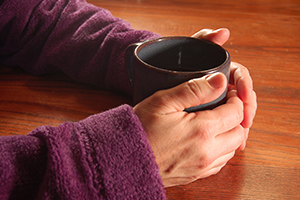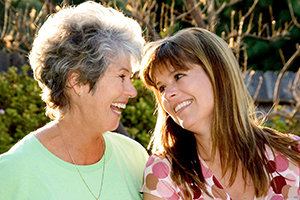Hospice Volunteer Resources







Looking to Volunteer?
Code of Conduct
Hospice Policies & Procedures
Diversity at PGHPCS
Diversity Statement
At the Prince George Hospice Palliative Care Society, we believe that diversity is a strength and that inclusivity is critical to our success. We are committed to creating a workplace that is welcoming and supportive of all individuals, regardless of their age, gender, sex, race, religion, sexual orientation, disability, or any other aspect of their identity.
We recognize that our differences make us stronger and that by embracing diversity, we can better understand and serve our clients, guests, customers, partners, and communities. We are committed to fostering a culture of respect, inclusion, and equality, where everyone is valued, heard, and empowered to succeed.
We strive to create a workplace where everyone feels comfortable being themselves and where diversity is celebrated as a core value. We are committed to providing equal opportunities for employment, development, and advancement, and to ensuring that all employees are treated with fairness, dignity, and respect.
We understand that building a truly inclusive and diverse workplace is an ongoing journey, and we are committed to continuous learning and improvement. We welcome feedback, suggestions, and ideas from our employees, clients, guests, customers, and partners, and we are dedicated to working together to create a more equitable and inclusive future for all.
Qualities of a Hospice Volunteer
Compassion
Ability to tune into other people’s distress and feel a desire to alleviate it.
Observation Skills
Guests may not always disclose what is bothering them; it is important to have a sharp eye for anything that could be causing distress in their environment.
Time Management
Prioritizing your tasks and working efficiently will eliminate any extra time spent where it is not needed.
Healthy Communication
Tapping into healthy communication either verbally or written will benefit the guest/family, and understanding the guest may not be able to express their feelings verbally; this may require talking to the health care team.
Interpersonal Skills
Having healthy social skills will help you build rapport and trust with your guest and their families, and in turn, this will create a strong open relationship.
Patience
This is a difficult time for guests and their families, while your own pain may appear, it is important to recognize it and give all of yourself to someone else in a calm and respectful manner resulting in successful care.
What is the difference between Palliative and Hospice Care?
What is Hospice Care?
Hospice supports those who have decided to abstain from further treatments and life-saving interventions, understanding that no further medical attempts will cure or slow the disease progression. The primary focus of hospice is to care for, comfort, and maintain the quality of life for individuals at end-of-life. Another significant priority is encouraging family caregiver well being, healthy bereavement outcomes, and promoting patient, family, staff, and physician satisfaction. These objectives are accomplished through an interdisciplinary team, which may include: physicians, nurses, care aides, social workers, and grief support staff and volunteers. In addition, hospice teams will often meet with patients and their families to establish appropriate and realistic goals while working to support families. In addition, the PGHPCS supports individuals with short stays for pain management and respite.
What is Palliative Care?
Palliative care is an approach in health care that aims to care for people who have the following illnesses (though the list is not limited to these):
-
- cardiac diseases (congestive heart failure);
- lung disease (chronic obstructive pulmonary disease, asthma);
- cancer (any type, especially when there is a diagnosis of metastasis);
- renal disease;
- advanced neurocognitive disorder (i.e., Alzheimer’s, Parkinson’s);
- end-stage liver disease;
- end-stage amyotrophic lateral sclerosis;
- end-stage multiple sclerosis;
- any catastrophic brain injury;
- strokes with poor outcome and no quality of life; and
- HIV/AIDS.
Palliative care is designed for people at any stage of an illness that cannot be cured. It is suitable for children, adults, and the elderly. Palliative care is defined by the Canadian Hospice Palliative Care Association (2021) as “a specialized form of healthcare for individuals and families who are living with a life-limiting illness that is usually at an advanced stage. The goal of palliative care is to provide comfort and dignity for the person living with the illness, as well as the best quality of life for both this person and their family” (p. 1). Even though someone with a life-limiting illness can access palliative care, they can also continue to pursue full medical interventions with the hope that a cure or a productive treatment can change their particular condition. Palliative care is pursued with the intention that once a cure has been achieved the patient will no longer need palliative care services. Palliative care is also an option for people who have had several admissions to the hospital, including visits to the emergency room due to a pain crisis, distress resulting from other causes, and, or failure to cope well with illness at home within the year.
Canadian Hospice Palliative Care Association. (2020, February 5). The National Voice for Hospice Palliative Care in Canada. https://www.chpca.ca/?gclid=EAIaIQobChMI68OIkunT9QIVTAytBh0LZA85EAAYASAAEgI4IvD_BwE
Do’s and Don’ts of a Hospice Volunteer
Do
-
- Take your time
- Listen with your whole self
- Maintain the “volunteer” role
- Build trust
- Encourage independence as limitations permit
- Reach out
- Be respectful and non-judgmental
- Be genuine, open, honest, and sensitive
- Be dependable and consistent
- Have a cheerful approach
- Encourage person to initiate subjects they wish to discuss
- Use open-ended statements
- Err on the side of caution and slow pace
- Maintain confidentiality
- Respect person’s rights to (physical and emotional) privacy
- Know and admit your strengths and weaknesses
Don’t
-
- Get into the telling role
- Use “you should”
- Give advice
- Focus on self-enhancement (the savior role)
- Over praise
- Intrude
- Probe (if you ask open-ended questions, you wont need to probe, the conversation will unfold naturally)
- Appear busy and distracted (example: using your phone)
- Follow your own agenda
- Talk down to a person
- Stay too long (people’s non verbal gestures will tell you when it is time to leave)
- Monopolize the conversation
- Gossip (during and after the interaction)
- Direct premature discussion of action plans
- Patronize or placate — “that’s all right now”
- Rely on the use of clichés
- Change the subject (even though the topic, or silence can be uncomfortable, sit in it)
- Ignore the problems raised by the person
- Use closed, irrelevant or inappropriate questions
- Use inappropriate warmth or sympathy (example: “at least you were married for 50 years”.
- Use inappropriate, irrelevant, or premature self-disclosure
The benefits of social/peer support during the end-of-life:
- It is widely understood that poor social support, including loneliness, can adversely affect someone’s physical, emotional, and mental well being. In addition, poor social support are also linked to premature mortality rates.
- Social support can improve cardiovascular, endocrine, and immune system health as measured by blood pressure, heart rate, epinephrine, norepinephrine, cortisol levels, and immune cells and antibodies.
- Research has shown that the quantity and quality of social support can highly influence the well being for those grieving.
Website Resources
“BC Hospice Palliative Care Association is a not-for-profit, membership organization, which has been representing individuals and organizations committed to promoting and delivering hospice/palliative care to British Columbians since 1986.”
“The CHPCA is the national voice for Hospice Palliative Care in Canada. Advancing and advocating for quality end-of-life/hospice palliative care in Canada, its work includes public policy, public education and awareness.”
“The Canadian Virtual Hospice provides support and personalized information about advanced illness, palliative care, loss and grief, to people living with illness, family members, people working in healthcare, educators, and researchers”.
Video & Article Resources
Volunteer Advice Video Series
These are the faces of our guests’ families, our incredible staff & volunteers, and the donors that provide the resources we need to provide care and compassion for those in need
Find all of our previous Support and Resource videos and subscribe to see our new videos as they are developed.
Video by Brene Brown
Brene Brown – Social Work scholar discusses, “What is the best way to ease someone’s pain and suffering?” In this beautifully animated Dr Brené Brown video, she reminds us that we can only create a genuine empathic connection if we are brave enough to get in touch with our fragilities.
Northern Health Palliative Education – Approach to End of Life Care – Sep 2018 Video
The Canadian Hospice Palliative Care Association. Webinars on: Children experiencing grief, Conversations with parents who have a child with a serious illness, advance care planning, palliative care in long term care homes, the power of grief and much more.
This brochure outlines the physical changes that happen when death is near. First Nations Health Authority
Books on Loss & Grief
All these books can be found in the Hospice Library
The handbook for companioning the mourner – Alan D Wolfelt.
“This inspiring handbook explores Dr. Wolfelt’s companioning model of grief care and contrasts it with the traditional treatment model. Concise and engaging, this is a primer designed to spread the companioning philosophy among everyone who walks alongside mourners”.
No one dies alone – Lani Leary
“No one dies alone offers the practical skills, vocabulary and insights needed to truly address the needs of a dying loved one while caring for yourself through the process” This book offers “how to listen to and support a loved one’s needs, what to expect as a loved one declines and the different grieving processes and tasks, the key to support a grieving child, what resources are available for patients and caregivers and the lessons of near-death experiences and the value of after-death communication”.
Final journeys. A practical guide for bringing care and comfort at the end of life – Maggie Callanan.
“Designed to be your companion, resource and advocate from diagnosis through the final hours, Final Journeys will help you keep the lines of communication open, get the help you need and create the peaceful end we all hope for”.
Final Gifts. Understanding the special awareness, needs and communications of the dying – Maggie Collanan and Patricia Kelley.
“No one dies alone offers the practical skills, vocabulary and insights needed to truly address the needs of a dying loved one while caring for yourself through the process” This book offers “how to listen to and support a loved one’s needs, what to expect as a loved one declines and the different grieving processes and tasks, the key to support a grieving child, what resources are available for patients and caregivers and the lessons of near-death experiences and the value of after-death communication”.
Family Hospice Care. Pre-planning and care guide – Harry Van Bommel.
“This book offers a concise compendium of knowledge. It will serve to enhance one’s sense that in the presence of death we are able to and be something other then helpers. The knowledge suggestions in this book hope to diminish suffering, enhance meaning, and guide us in the completion of the tasks places before us by death.
The Hospice Handbook. – Larry Beresford.
“A complete guide to what is hospice and isn’t, how to find the right hospice, how to determine eligibility, how to make an informed decision, the right questions to ask and how to get the best care for your money.
To be considered for a Volunteer position, please fill out a Volunteer Application Form Here.
In considering whether Hospice volunteering is a service you want to give at this time, please consider this Personal Inventory.
